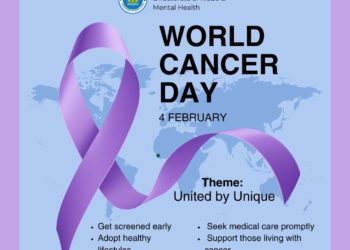By Kemo Cham
There is no need for severe lockdown measures in this phase of the response to the COVID-19 pandemic, the head of the Africa Centres for Disease Control and Prevention (Africa CDC) has said, urging governments to consider using public health and social measures more carefully and in a balanced way.
Speaking at a press conference on Thursday, Dr John Nkengasong, the Africa CDC Director, said severe lockdowns are no longer the way to prevent the spread of the virus as has been demonstrated in the response to the 4th wave of the pandemic, especially by South Africa.
Dr Nkengasong’s comment comes in the face of the reintroduction of travel restrictions by some countries in the wake of the confirmation of the latest variant of the Covid-19 virus – Omicron, which is said to be driving the rapid increase in infection rates in many countries currently going through the 4th wave of the pandemic.
The Omicron variant was first discovered in South Africa.
Several western countries, including the US, UK and France, imposed travel ban on South Africa over the issue.
But Dr Nkengasong says South Africa’s handling of the virus in this phase is a proof that there is no need for travel and other movement restrictions.
“We are very encouraged with what we saw in South Africa during this period where they look at the data in terms of severity (of infections),” said Dr Nkengasong, adding: “The period where we are using severe lockdowns as a tool is over.”
South Africa recorded a sharp rise in its COVID-19 infections late in November, at the same period scientists there isolated the Omicron variant. The new infection rate in the country peaked in December.
But as of the first week of January, data show that the numbers have been steadily reducing. And this happened without the government resorting to severe restrictive measures like during the previous phases of the pandemic.
The Africa CDC boss said the focus of countries should now be on increasing vaccination coverage. He expressed fear that COVID-19 could become endemic on the continent in light of the slow pace of vaccination.
“Unless by the end of this year the continent actually scales up its vaccination to above 70 percent or 80 percent, my worry is that we might be into a scenario where COVID becomes endemic,” Dr Nkengasong told journalists during the agency’s weekly press briefing, which is held virtually.
Latest figures from the Africa CDC indicate that less than 10 percent of the continent’s population has been fully vaccinated against COVID-19.
Despite predictions by experts that COVID-19 would hit Africa the hardest when it spread from China in early 2020, the impact of the pandemic on the continent has been less severe.
According to figures from the World Health Organization (WHO), Africa accounts for the lowest global infection rates, with 7, 493, 439 cases and 157, 341 deaths, as of January 6th 2022.
The discovery of Omicron rekindled fears of the pandemic devastating Africa. But WHO says while cases have surged fastest on the continent this year, the death remains low.






















